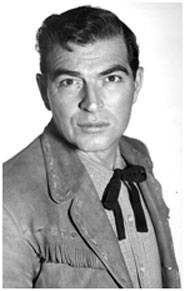

Cite uses deprecated parameter |editors= ( help) CS1 maint: ref=harv ( link) Črnič, Aleš (2013). CS1 maint: ref=harv ( link) Blain, Jenny Wallis, Robert J. Sacred Sites, Contested Rites/Rights: Pagans Engagements with Archaeological Monuments. Cite uses deprecated parameter |editors= ( help) CS1 maint: ref=harv ( link) Blain, Jenny Wallis, Robert (2007). "Heathenry, the Past, and Sacred Sites in Today's Britain". CS1 maint: ref=harv ( link) Blain, Jenny (2005). Nine Worlds of Seidr-Magic: Ecstasy and Neo-Shamanism in North European Paganism. CS1 maint: ref=harv ( link) Blain, Jenny (2002). Columbia, South Carolina: University of South Carolina Press. Voices from the Pagan Census: A National Survey of Witches and Neo-Pagans in the United States. Cite uses deprecated parameter |editors= ( help) CS1 maint: ref=harv ( link) Berger, Helen A. Contemporary Pagan and Native Faith Movements in Europe: Colonialist and Nationalist Impulses. "It's Not Easy Being Apolitical: Reconstructionism and Eclecticism in Danish Asatro". CS1 maint: ref=harv ( link) Amster, Matthew H. The Pomegranate: the International Journal of Pagan Studies. "Heathens Up North: Politics, Polemics, and Contemporary Paganism in Norway". CS1 maint: ref=harv ( link) Asprem, Egil (2008). " 'Skeggøld, Skálmöld Vindöld, Vergöld': Alexander Rud Mills and the Ásatrú Faith in the New Age". CS1 maint: ref=harv ( link) Asbjørn Jøn, A. Drawing Down the Moon: Witches, Druids, Goddess-Worshipers and Other Pagans in America (revised ed.). Other writers such as Ludwig Fahrenkrog supported his claims, resulting in the formation of both the Bund fur Persönlichkeitskultur (League for the Culture of the Personality) and the Deutscher Orden in 1911 and then the Germanische-Deutsche Religionsgemeinschaft (Germanic-German Religious Community) in 1912. Criticising the Jewish roots of Christianity, in 1900 the Germanist Ernst Wachler published a pamphlet calling for the revival of a racialized ancient German religion. This development went in tandem with a growth in nationalism and the idea of the volk, contributing to the establishment of the Völkisch movement in German-speaking Europe. Such an attitude was promoted by the scholarship of Romanticist intellectuals like Johann Gottfried Herder, Jacob Grimm, and Wilhelm Grimm.

Guido von List, who promoted an early form of Heathenryĭuring the late 18th and 19th centuries, German Romanticism focused increasing attention on the pre-Christian belief systems of Germanic Europe, with various Romanticist intellectuals expressing the opinion that these ancient religions were "more natural, organic and positive" than Christianity.


 0 kommentar(er)
0 kommentar(er)
